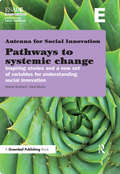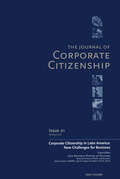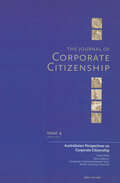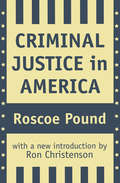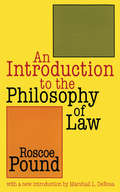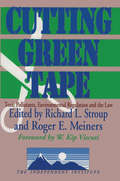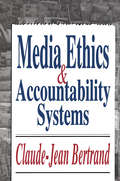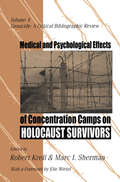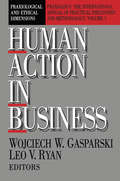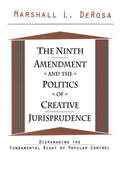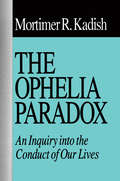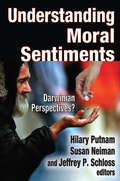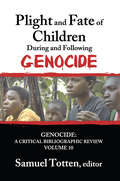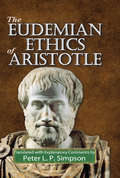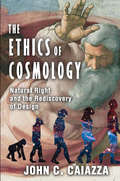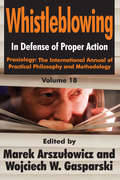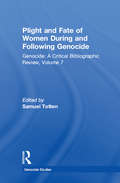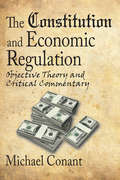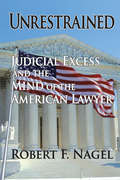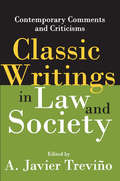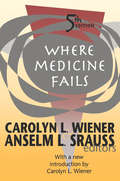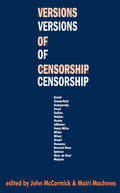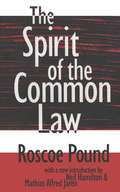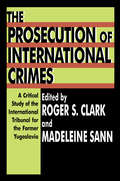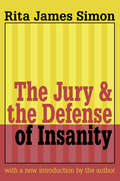- Table View
- List View
Pathways to Systemic Change: Inspiring Stories and a New Set of Variables for Understanding Social Innovation
by David Murillo Heloise BucklandThe world’s social, ecological and economic problems are so complex and diverse that there will never be a “one-size-fits-all” model for social innovation. The very nature of social innovation as a new, better way of solving social problems means that it is not even in the interest of social innovation advocates to create tidy definitions, but rather to create environments that allow for the process of creative destruction with a social purpose to prosper. Inspired by a desire to deepen our understanding of the role of social innovation in addressing today’s most pressing challenges, authors Heloise Buckland and David Murillo explore four inspiring cases and define a new set of variables to help better understand the conditions under which social innovation can be most effective. These variables can be helpful for investors, governments, academic centres, foundations and individual entrepreneurs interested in measuring the potential of any given social innovation to bring about the much-needed systemic change to solve today’s complex challenges. This book builds on a track record of research and education in corporate social responsibility and social entrepreneurship at ESADE Business School’s Institute of Social Innovation. Building on an understanding of the key characteristics and challenges faced by social entrepreneurs, here authors undertake a deeper analysis of social innovation.
Corporate Citizenship in Latin America: A special theme issue of The Journal of Corporate Citizenship (Issue 21)
by Jose Antonio Puppim De OliveiraCorporate citizenship and corporate social responsibility have become hot topics of debate for business, academia and organised civil society in Latin America. However, although there is a lot of material in Spanish and Portuguese, there are few publications available in English. This special issue of JCC opens the discussion in English across different countries in the region.
Australasian Perspectives on Corporate Citizenship: A special theme issue of The Journal of Corporate Citizenship (Issue 4)
by Birch DavidThis special issue, devoted to Australasian perspectives, is timely in a debate in the region that is gaining momentum every day. Contributors to this issue are leading scholars in the field in Australia, New Zealand and India .
Criminal Justice in America (Quality Paperbacks Ser.)
by Roscoe PoundRoscoe Pound believed that unless the criminal justice system maintains stability while adapting to change, it will either fossilize or be subject to the whims of public opinion. In Criminal Justice in America, Pound recognizes the dangers law faces when it does not keep pace with societal change. When the home, neighborhood, and religion are no longer capable of social control, increased conflicts arise, laws proliferate, and new menaces wrought by technology, drugs, and juvenile delinquency flourish. Where Pound saw the influence of the motion pictures as part of the "multiplication of the agencies of menace," today we might cite television and the Internet. His point still holds true: The "old machinery" cannot meet the evolving needs of society. In Criminal Justice in America,Pound points out that one aspect of the criminal justice problem is a rigid mechanical approach that resists change. The other dimension of the problem is that change, when it comes, will result from the pressure of public opinion. Justice suffers when the public is moved by the oldest of public feelings, vengeance. This can result in citizens taking the law into their own hands--from tax evasion to mob lynchings--as well as in altering the judicial system--from sensationalizing trials to producing wrongful convictions. Ron Christenson, in his new introduction, discusses the evolution of Roscoe Pound's career and thought. Pound's theories on jurisprudence were remarkably prescient. They continue to gain resonance as crimes become more and more sensationalized by the media.Criminal Justice in America is a fascinating study that should be read by legal scholars and professionals, sociologists, political theorists, and philosophers.
An Introduction to the Philosophy of Law (Storrs Lecture)
by Roscoe Pound Marshall. L DeRosaIn An Introduction to the Philosophy of Law, Roscoe Pound shows how philosophy has been a powerful instrument throughout the history of law. He examines what philosophy has done for some of the chief problems of the science of law and how it is possible to look at those problems philosophically without treating them in terms of a particular time period. The function of legal philosophy, writes Pound, is to rationally formulate a general theory of law which conforms to the interests, the general security first and foremost, of society. Marshall DeRosa writes in his new introduction that in the light of twentieth-century judicial politics, Roscoe Pound's philosophy of law has prevailed to a significant extent. This book's relevance to appreciating the development of the American legal system in all its complexities - including liability law, contract law, and property law - is in itself notable. But, in terms of understanding the twentieth-century development of the American rule of law, An Introduction to the Philosophy of Law is indispensable. It will make an invaluable addition to the personal libraries of legal theorists, philosophers, political scientists, and historians of American law.
Cutting Green Tape: Pollutants, Environmental Regulation and the Law
by Richard L. Stroup Roger E. MeinersHundreds of hazardous waste sites are on the Superfund National Priority List in the United States, and thousands more could become eligible. The Superfund has spent or ordered the spending of billions of dollars, with little apparent impact on human health risks. While public perception of the real or imagined hazardous nature of consumer and industrial substances has resulted in widespread attention to the issue, lawsuits have proliferated with liability aimed at "deep pockets" instead of individual agents who may be responsible. Contributors to Cutting Green Tape carefully examine the existence and severity of the toxic harms and liability problem, the erosion of a clear tort legal system to settle disputes, and whether a clearly defined system of property rights could be developed to reduce the dangers from toxic substances.Cutting Green Tape rethinks the nature and impact of today's environmental bureaucracy. Rather than continue unworkable, cumbersome, and often contradictory regulations, Cutting Green Tape prescribes a clearer tort legal system to settle disputes and demonstrates that clearly defined environmental property rights would reduce the threat of toxic substances. Among the many topics addressed are: air toxins policy; pollution, damages, and tort law; risk assessment, insurance, and public information; protecting groundwater; regulation of carcinogens; contracting for health and safety; and toxin torts by government.The book converges on a central theme: when common law remedies, with their burden of proof and standards of evidence, are replaced by the legislatively mandated regulatory regimes described, a problem emerges. The bureaucratic "tunnel vision" described by Justice Stephen Breyer, tends to take over. The police powers of the state are given to bureaucratic decision makers who are limited only by the blunt instrument of political influence, rather than by the need to show harm or wrongdoing in an unbiased court (as the police are), or by a budget on expenditures set by the Congress (as most bureaus are). The excesses described in the chapters thus result not from incompetence in the bureaus, but from the expansive powers granted to decision makers who are tightly focused on the narrow mission they see before them.
Media Ethics and Accountability Systems
by Claude-Jean BertrandOver the last few years, the O.J. Simpson case, then the Lewinsky-Clinton affair, and scores of minor scandals have dominated the US press, often taking precedence over important domestic and international issues. This tabloidization of the news media, both here and abroad, has proved that "the market" cannot insure media quality. In a democracy, for media to function well, they must be free of both political and economic muzzling. The only solution is to add self-regulation, or quality control, by professionals and public to the other two forces, the market and state regulation.In this controversial volume, Claude-Jean Bertrand sets out to define a set of accountability systems--democratic, efficient, and harmless--to insure true freedom and quality of media. This brief, highly literate volume focuses not on philosophical foundations of media ethics or case stories, but on what is now missing in the codes. Many books deal with media ethics but few deal with accountability. Media Ethics and Accountability Systems zeroes in on the many nongovernmental methods of enforcing "quality control," and on the difficulty of getting the media microcosm to accept such accountability. To remedy this lack, Bertrand proposes rethinking existing "media accountability systems," some 30 to 40 in number, and creation of new ones. He observes that existing systems are rooted in four basic approaches: training: the education of citizens in media use and the incorporation of ethics courses in journalistic education; evaluation: criticism (positive and negative) not only from politicians, consumerists, and intellectuals, but from media professionals themselves; monitoring: by independent, academic experts over extended periods of time into the long-term effects; and feedback: giving ear to the various segments of media users and their needs and tastes, rather than scrutinizing sales and ratings.Media Ethics will be of particular interest to academics in the fields of communication and journalism, as well as to the general reader with an interest in public issues and a civic concern for society.
Medical and Psychological Effects of Concentration Camps on Holocaust Survivors: A Research Bibliography (Genocide Ser. #Vol. 4)
by Robert Krell & Marc I. ShermanThis unique research bibliography is offered in honor of Leo Eitinger of Oslo, Norway. Dr. Eitinger fled to Norway in 1939, at the start of the World War II. He was caught and deported to Auschwitz, where, among others, he operated on Elie Wiesel who has written the foreword to this volume. After the war, Eitinger became a pioneering researcher on a subject from which many shied away. His contributions to understanding of the experience of massive psychological trauma have inspired others to do similar work. His many books and papers are listed in this special volume of the acclaimed bibliographic series edited by Israel W. Charny of The Institute on the Holocaust and Genocide in Jerusalem.In order to acquaint users of this bibliography with the topic, two introductory articles are offered. The first is titled "Survivors and Their Families" and deals with the impact of the Holocaust on individuals. The second, "Psychiatry and the Holocaust," examines the general impact of the Holocaust on the field of psychiatry. Robert Krell writes that in general the psychiatric literature has reflected critically on the survivor due to preconceived notions held by many mental health professionals. For many years, the exploration of victims' psychopathology obscured the remarkable adaptation made by some survivors. The problems experienced by survivors and possible approaches to treatment were entirely absent from mainstream psychiatric textbooks such as the Comprehensive Textbook of Psychiatry throughout the 1960s and 1970s.Fifty years of observations about survivors of the concentration camps and other survivors of the Holocaust (in hiding, as partisans, in slave labor camps) has provided a new body of medical and psychiatric literature. This comprehensive bibliography contains a plethora of references to significant pieces of literature regarding the Holocaust and its effects on survivors. It will be of inestimable value to physicians, psychiatrists, psychologists, and social workers, along with historians, sociologists, and Holocaust studies specialists.
Human Action in Business: Praxiological and Ethical Dimensions
by Wojciech W. Gasparski Leo V. RyanPraxiology deals with working and doing from the point of view of effectiveness. It has three components: analysis of concepts involving purposive actions; critique of modes of action from the viewpoint of efficiency; and normative advisory aspects in recommendations for increasing human efficiency. This fifth volume of the Praxiology series is devoted to Human Action in Business: Praxiological and Ethical Dimensions. The adjective praxiological here means not only related to praxiology as human theory, but also assessed against the dimensions of effectiveness and efficiency. Adding also the ethical dimension, one defines the universe of the discourse about conduct characteristic of business, the economy, and management.Topics in business and management philosophy and theory are discussed by eminent contributors from different corners of the world: P. Ulrich (Switzerland); M. Bohata (Czech Republic); S. K. Chakreborty (India); J. Donaldson, H.E. Sternberg, and P. Graham (U.K.); H. van Lujik and H. Hummels (The Netherlands); O. Loukola (Finland); Y. Pesqueux and I. Tovey (France); T.A. Mathias (India); W. W. Gasparski, A. Lewicka-Strzalecka and J. Sojka (Poland); M. Tamari (Israel); R. E. Freeman, R. G. Kennedy, S. Natale, J. A. Matel, N. Bowie, D. McCann, L. V. Ryan, P. Werhane, and K. Goodpaster (United States). Selected speeches by Pope John Paul II addressed to managers, businessmen, and general audiences involved in the economy are also included in this volume.In Volume 5, invited specialists examine the praxiological and ethical aspects of human action under the rubric of the "Triple E": Efficiency, Effectiveness, and Ethics. The volume opens with contributions reflecting on the praxiological and ethical foundations for business followed by sections discussing human action from the perspectives of religious beliefs and cultural diversity. Another section illustrates the application of these principles to business. The concluding chapters examine praxiology and ethics as the moral agenda for professional education. The volume is a must read for economists, businesspeople, social scientists, and policymakers.
The Ninth Amendment and the Politics of Creative Jurisprudence: Disparaging the Fundamental Right of Popular Control
by Marshall DeRosaThe Ninth Amendment holds that every right not explicitly granted to the federal government by the Constitution belongs to the states or to the individual. Further, those rights held by the government should not be construed to deny or disparage other rights held by the people. As in other areas of contention between federal power and states' rights, the Ninth Amendment has become subject to activist Supreme Court interpretation whereby the traditional model of federalism, in which states had meaningful public policy prerogatives, has given way to a model in which states become mere extensions of the U. S. government.In this volume, Marshall DeRosa provides a thorough analysis of Supreme Court unenumerated rights policy and offers suggestions toward reestablishing American federalism as envisioned by the framers of the Constitution. The book opens with a review and analysis of current debates over Ninth Amendment rights and then utilizes the privileges and immunities clauses as demonstrative of the traditional relationship between the states' police powers and unenumerated fundamental rights. DeRosa then considers the critical role of academia in shifting public policy away from popular control and toward the judiciary. Later chapters include national and state case studies as instances of judicial creativity, an examination of the effects of Ninth Amendment jurisprudence on the Second Amendment as it bears on the gun control debate, and a comparative analysis of contrasting theories on the status of unenumerated rights. In his conclusion DeRosa offers some prescriptive thoughts on how to restore the original constitutional concept of popular consent as a remedy to an increasingly unaccountable federal judiciary.By restoring the Ninth Amendment to the context of American federalism, this volume constitutes a major contribution to contemporary scholarship, challenging a corpus of commentary that either ignores, misunderstands, or misrepresents the relevance of popular control in the articulation of unenumerated rights. The Ninth Amendment and the Politics of Creative Jurisprudence will be of interest to political scientists, historians, legal theorists, and political practitioners.
The Ophelia Paradox: An Inquiry into the Conduct of Our Lives
by Mortimer R. KadishIn Shakespeare's Hamlet, when Ophelia tells King Claudius, "Lord, we know what we are, but know not what we may be," she implies more than that we can never know what will happen next, that we have no grounds on which to make significant decisions in the conduct of our lives. She herself had done little or nothing to bring about her present state. Now she is quite mad. Claudius, too, could never have guessed where he would end. Yet the rest of us, although not significantly more knowing than they, profess to think we can actually make Me decisions which genuinely good reasons will support.Experience seems to have convinced us that, deficient in self-knowledge though we may be, sometimes the arrow of decision reaches its mark. Kadish examines how decisions hi the conduct of our lives are possible, how they may be justified, and what the limits of that justification might be for a self that defines itself in a context of social change. Although the need for self-justification tends to be regarded as a weakness, this book suggests that it may also be regarded as the inevitable outcome of the desire to make justifiable decisions, those for which on reflection one can approve oneself.The prime problem of the conduct of life, according to Kadish, is to say when one can and when one cannot justify oneself for one's conduct not to others but to oneself. He proposes that through self judgment individuals develop that very self-interest in virtue of which they endeavor to choose one course of action rather than another. He proposes also that they justify and form themselves through their self-identification as members of communities in conflict and in process of transformation. From this difficult social and human condition the basic problems of ethical and social theory, together with the possibility of a theory of good reasons, are held to arise.In the present time of discontent and emphasis on change hi social, economic, and political life, The Ophelia Paradox has a particular pertinence to the prospects for resolving the basic issues of conduct. It should be of interest to philosophers, sociologists, and psychologists, and of special relevance to anyone concerned with the interrelationships of ethics, art, and law.
Understanding Moral Sentiments: Darwinian Perspectives?
by Hilary PutnamThis volume brings together leading scholars to examine Darwinian perspectives on morality from widely ranging disciplines: evolutionary biology, anthropology, psychology, philosophy, and theology. They bring not only varied expertise, but also contrasting judgments about which, and to what extent, differing evolutionary accounts explain morality. They also consider the implications of these explanations for a range of religious and non-religious moral traditions.The book first surveys scientific understandings of morality. Chapters by Joan Silk and Christopher Boehm ask what primatology and anthropology tell us about moral origins. Daniel Batson and Stephen Pinker provide contrasting accounts of how evolution shapes moral psychology, and Jeffrey Schloss assesses a range of biological proposals for morality and altruism. Turning to philosophical issues, Martha Nussbaum argues that recognizing our animal nature does not threaten morality. Stephen Pope and Timothy Jackson explore how Darwinian accounts of moral goodness both enrich and require understandings outside the sciences. Hilary Putnam and Susan Neiman ask whether Darwin is truly useful for helping us to understand what morality actually is and how it functions.The book is a balanced effort to assess the scientific merits and philosophical significance of emerging Darwinian perspectives on morality.
Plight and Fate of Children During and Following Genocide (Genocide: A Critical Bibliographic Review Ser.)
by Samuel TottenPlight and Fate of Children During and Following Genocide examines why and how children were mistreated during genocides in the twentieth and twenty-first centuries. Among the cases examined are the Australian Aboriginals, the Armenian genocide, the Holocaust, the Mayans in Guatemala, the 1994 Rwanda genocide, and the genocide in Darfur. Two additional chapters examine the issues of sexual and gender-based violence against children and the phenomenon of child soldiers.Following an introduction by Samuel Totten, the essays include: "Australia's Aboriginal Children"; "Hell is for Children"; "Children: The Most Vulnerable Victims of the Armenian Genocide"; "Children and the Holocaust"; "The Fate of Mentally and Physically Disabled Children in Nazi Germany"; "The Plight and Fate of Children vis-a-vis the Guatemalan Genocide"; "The Plight of Children During and Following the 1994 Rwandan Genocide"; "Darfur Genocide"; "Sexual and Gender-Based Violence against Children during Genocide"; and, "Child Soldiers." Contributors include: Colin Tatz, Henry C. Theriault, Asya Darbinyan, Rubina Peroomian, Jeffrey Blutinger, Amanda Grzyb, Elisa von Joeden-Forgey, Sara Demir, Hannibal Travis, and Samuel Totten.The editor and several of the contributors have personally investigated and witnessed the aftermath of genocidal campaigns.
The Eudemian Ethics of Aristotle
by Peter L. SimpsonAmong the works on ethics in the Aristotelian corpus, there is no serious dispute among scholars that the Eudemian Ethics is authentic. The Eudemian Ethics is increasingly read and used by scholars as a useful support and confirmation and sometimes contrast to the Nicomachean Ethics. Yet, it remains a largely neglected work in the study of Aristotle's ethics, both among scholars and moral philosophers.Peter L. P. Simpson provides an analytical outline of the entire work together with summaries of each individual section, making the overall structure and detailed argument clear. His translation and explanatory notes include the common books that the Eudemian Ethics shares with the Nicomachean. This translation contains renderings of words and phrases, and proposals for emending the text that differ from what other translators and scholars have adopted.This translation is literal, without expansion or paraphrase, and yet also readable. A readable but literal translation is necessary because in the Eudemian Ethics, more than usual in Aristotle's writings, the logic of the argumentation can turn on the peculiar wording or order. Simpson explains the argumentation where necessary in notes and separate explanatory comments. This book is a fresh, twenty-first-century rendition of the work of one of the most eminent philosophers of all time.
The Ethics of Cosmology: Natural Right and the Rediscovery of Design
by John C. CaiazzaWithin the last one hundred years, the scientific conception of the universe has undergone radical change. As a result a new field has evolved, called "cosmology," that examines the philosophical and scientific nature of the universe. Cosmology conceives of a material universe in which the interior of atoms do not act in the same predictable manner as the objects we can see and in which space is no longer empty volume unaffected by the matter within it. The universe is not a machine that operates with the same set of rules, but rather a living, growing organism.This new cosmology is forcing a consideration of the meaning of life that also calls for a reconsideration of moral law—the doctrine of natural right. Natural law theory is based on a cosmology that is grounded in classical metaphysics. John C. Caiazza uses the term "natural right" rather than "natural law" since his argument for cosmic teleology is based on the cosmology of contemporary science and not that of classical metaphysics. If evolution and development are the key to understanding nature, it is important to get the evolutionary concept of nature right, especially when it involves ethics.The universe can be viewed in two ways. One can admire the intricacy of the cosmological process on the physical, chemical, and astronomical levels. Or, one can look at this process as a result of design or providence. These two options should not preclude each other, Caiazza asserts; we should instead look closely at what science reveals about design. This volume offers an opportunity to reconcile the thinking of those who hold to traditional religious views on the origins of the universe and those who look to scientific explanations.
Whistleblowing: In Defense of Proper Action
by Wojciech W. GasparskiThis latest volume in this important international series discusses practical errors and wrongdoing considered under the action theory (praxiological) umbrella, linking these to ethical behavior. Human actions related to the conduct of business should be effective and efficient. But such praxiological criteria are of secondary importance to norms that should also be taken into account. The primary norm is ethical behavior, which defines the morality of business activities on the basis of the good; these are the presupposed foundations for the human actions in business.The articles in this volume discuss whistleblowing, or the exposure of behavior that violates the ethical foundations of business. They are written from different angles and present a variety of experiences, adding new value to both the subject of praxiology as well as ethics as it relates to economic activity in its social and global context. The issues, problems, and questions raised by this international group of eminent scholars have much to add to the contemporary debate induced by the present economic crises. These crises have revealed practical errors and hypocrisy of those responsible for leadership and management, primarily of financial institutions.
Plight and Fate of Women During and Following Genocide: Volume 7, Genocide - A Critical Bibliographic Review (Genocide Studies)
by Samuel TottenThe plight and fate of female victims during the course of genocide is radically and profoundly different from their male counterparts. Like males, female victims suffer demonization, ostracism, discrimination, and deprivation of their basic human rights. They are often rounded up, deported, and killed. But, unlike most men, women are subjected to rape, gang rape, and mass rape. Such assaults and degradation can, and often do, result in horrible injuries to their reproductive systems and unwanted pregnancies. This volume takes one stride towards assessing these grievances, and argues against policies calculated to continue such indifference to great human suffering.The horror and pain suffered by females does not end with the act of rape. There is always the fear, and reality, of being infected with HIV/AIDS. Concomitantly, there is the possibility of becoming pregnant.Then, there is the birth of the babies. For some, the very sight of the babies and children reminds mothers of the horrific violations they suffered. When mothers harbor deep-seated hatred or distain for such children, it results in more misery. The hatred may be so great that children born of rape leave home early in order to fend for themselves on the street.This seventh volume in the Genocide series will provoke debate, discussion, reflection and, ultimately, action. The issues presented include ongoing mass rape of girls and women during periods of war and genocide, ostracism of female victims, terrible psychological and physical wounds, the plight of offspring resulting from rapes, and the critical need for medical and psychological services.
The Constitution and Economic Regulation: Commerce Clause and the Fourteenth Amendment
by Michael ConantThis study uses basic economic analysis as a technique to comment critically on the original meaning and the interpretation of those clauses of the Constitution that have particular bearing on the economy. Many new conclusions are markedly different from those of the Supreme Court and earlier commentators. Conant's view is that the commerce clause and the equal protection clause, if they had been construed consistently with their comprehensive original meanings, would have given much greater federal protection against state laws that impaire free markets.Economic policy for the nation was vested in Congress. To the extent that special interests could buy congressional favor for their anticompetitive activities, free markets were impaired within constraints as interpreted by the court. These decisions have been criticized for their failure to incorporate the antimonopoly tradition in the Ninth Amendment and their failure to recognize equal protection of laws incorporated into the Fifth Amendment. Conant holds that statutory controls of the economy are justifiable in economic theory if they are designed to remedy market failures and thereby increase efficiency. If statutes are passed to interfere with markets and create market inefficiencies for the benefit of special interest groups, they should be condemned under the standards of normative microeconomics. There are four main classes of market failure: monopoly, externalities, public goods, and informational asymmetry. This masterful analysis examines all four reasons for market failure in depth.Litigation costs are analogous to transaction costs. If legal principles and rules are clearly and precisely defined by the Supreme Court when they are first appealed, litigation and its costs should be minimized. Conant claims that if legal principles or rules are uncertain because they lack definable standards, the number of legal actions filed and litigation costs will be much greater. This promotes additional litigation challenging the many statutes enacted to remedy asserted market failures in an expanding industrial economy. This work brilliantly addresses the danger to the economy in court rulings seeking to legislate standards of reasonableness.
Unrestrained: Judicial Excess and the Mind of the American Lawyer
by Robert F. NagelRobert Nagel's innovative volume attempts to explain why, despite almost four decades of conservative and moderate appointments, the Supreme Court continues to intervene aggressively in a wide array of social and political issues. The explanation lies primarily in the psychological effects of the way that lawyers think about law and judging. The instincts ingrained by the experiences common to legal education and the successful practice of law also work to encourage the reckless use of power.Nagel argues that the problem with the modern judicial role is cultural and political. He demonstrates that judges, especially Supreme Court justices, have degraded our political discourse, intensified social conflict, and drained moral confidence.By examining modern Supreme Court confirmation hearings along with certain classic legal writings, Nagel shows how modern lawyers have a broad consensus on how to interpret the Constitution and, more generally, how to think about law. One major component of this mindset is to combine realism with legalism in ways that naturally tend to expand the judiciary's imperial role. Realism counsels that decisions are inevitably partly personal and therefore cannot be conclusively justified while legalism imparts the sense that the judge's interpretation is the best one possible. This combination of the personal and political, along with other aspects of modem legal thinking and training, means that judges are not only unconstrained by professional norms but actually are impelled by them to use power expansively.This issue is important to every person living in the U.S., as the Supreme Court's decisions concern everyone in the nation. It has the potential to be read by lawmakers, lawyers, students of law and political science, and anyone interested in Constitutional law. The thesis is unique and the execution is precise.
Classic Writings in Law and Society: Contemporary Comments and Criticisms
by A. Javier TrevinoOver against such reference volumes as encyclopedias, which are intended to provide an overview and summary of a subject, and dictionaries, which define a series of terms, "commentaries" generally consist of a collection of lectures or essays that discuss and explain in some detail particular topics and sources. In law, the best known and oldest of these is William Blackstone's Commentaries on the Laws of England (1765-1769). Others, which are equally prominent, include James Kent's Commentaries on American Law (1826) and Joseph Story's Commentaries on the Constitution of the United States (1833). This volume is presented in the spirit of the aforementioned treatises. It consists of several essays of contemporary comments and criticisms intended generally to inform and educate.The commentaries in this book have two collective purposes. First and foremost, they are intended to acquaint a new generation of students with thirteen classic books written by diverse sociolegal scholars--ranging from Henry Sumner Maine, Oliver Wendell Holmes, Jr., and Hans Kelsen to Eugen Ehrlich, Nicholas S. Timasheff, and Richard Quinney. Second, they endeavor to demonstrate the contemporary theoretical relevance, the continuing legacy, of these classic writings. Accordingly, the commentaries discuss each of the scholars' work in general, how the particular book under consideration fits into that corpus, and how the book is assessed in a contemporary context. Singly and collectively these books have a clear relation to the "classic" tradition in thought--a tradition that, although not always acknowledged, is of great significance to current theorizing in law and society.The classic tradition represents those books that have come to be considered the foundational texts in the social scientific study of law. The commentaries collected here were written by some of today's leading scholars of law and society, including Piers Beirne, Dario Melossi, Kalus A. Zigert, Alan Hunt, Marshall B. Clinard, and Dragan Milovanovic.
Where Medicine Fails (Society Bks.)
by Carolyn L. Wiener Anselm L StraussThis fifth edition of Where Medicine Fails, like previous editions, argues for a broader definition of society's responsibilities to the ill than is commonly perceived to be the case. The authors examine the moral and economic implications of medical technology, especially in regard to fetal tissue transplant, cancer survival, childbirth, and dying, and provide a thoughtful assessment of the issues and challenges facing American hospitals. Seventeen chapters are new to this edition. The aim of this volume is to encourage serious examination of the current structure of health services and of the complicated facets of health care reform.
Versions of Censorship: An Anthology
by Mairi MacInnesCensorship and all it implies in terms both of our historical understanding and of issues of enormous moment in contemporary life defies brief definition because it is an idea that always engages our prejudices, penetrates to the dim regions where our manners and mores take form, and shapes our attitude to the rule law, while at the same time the responses it evokes, whether pernicious or benevolent, depend upon the actualities of the historical moment. Censorship is fascinating because its theory demands some decision on its practice whenever there is an intellectual or political crisis; it is a measure of individual rationality and liberalism. History, which has accelerated so powerfully in recent decades, has diffused our attention, and we tend to overlook the most urgent of the threats to ourselves from ourselves.Censorship is one of the gauges of civilization, and it has always aroused men's most passionate and partisan feelings. The issues involved exploded into the modern world with John Milton's Areopagitica in 1644, and have become ever more pressing as our world has grown smaller and smaller. This anthology is therefore of urgent relevance to our own lives and times.Milton's thesis rests upon the issue of religious belief, and it introduces the book's first part, "Censorship and Belief." With "Censorship and Fact," the book moves to the conflict of the interests of science and freedom of speech with those of the state. In "Censorship and the Imagination," the issue turns on the question of what art is and how it functions in society. And, finally, comes "Self-Censorship," with Dostoievsky and Freud opening up that modern vista where neurosis and politics meet.
The Spirit of the Common Law
by Roscoe PoundThe Spirit of the Common Law is one of Roscoe Pound's most notable works. It contains the brilliant lectures he delivered at Dartmouth College in the summer of 1921. It is a seminal book embodying the spiritual essence of sociological jurisprudence by its leading prophet. This work is both a celebration of the common law and a warning for common law judges and lawyers to return to and embrace the pragmatism and judicial empiricism that define and energize the common law. The two fundamental doctrines of the common law, Pound writes, are the doctrine of precedents and the doctrine of supremacy of law.In an earlier preface, Justice Arthur J. Goldberg writes that The Spirit of the Common Law will always be treasured by judges and lawyers for its philosophy and history, but more importantly for Roscoe Pound's optimism and faith in the capacity of law to keep up with the times without sacrificing fundamental values. It is a faith built upon the conviction that the present is not to be divorced from the past, but rather that the past and the present are to be built upon to make a better future. Neil Hamilton and Mathias Alfred Jaren provide a biographical introduction to the book. They discuss the various influences upon Pound's scholarly pursuits and they analyze many of his writings that led up to The Spirit of the Common Law. This volume is a necessary addition to the libraries of legal scholars and professionals, sociologists, and philosophers.
The Prosecution of International Crimes: A Critical Study of the International Tribunal for the Former Yugoslavia (The\prosecution Of International Crimes Ser.)
by Madeleine SannThe post-World War Two period has witnessed numerous armed conflicts characterized by extensive violations of relevant obligatory international norms. Responding to these events, the United Nations General Assembly created a permanent international court in 2003, with jurisdiction over selected international crimes. The International Tribunal for the Former Yugoslavia was a precursor to this permanent court. It was established for the purpose of "prosecuting persons responsible for serious violations of international humanitarian law committed in the territory of the former Yugoslavia." As a precedent for what we may expect in the future, it deserves special attention from a historical, political, and especially an international law point of view.The Prosecution of International Crimes comprehensively examines the creation, mandate, and challenges of the International Tribunal for the Former Yugoslavia. Derived from a special issue of Criminal Law Forum: An International Journal, a peer-review journal dedicated to the advancement of criminal law theory, practice, and reform throughout the world, it is now available in paperback.
Jury and the Defense of Insanity
by Rita J. SimonThirty years after it was first published, the issues raised in The Jury and the Defense of Insanity remain pertinent. Rita James Simon examines how motivated and competent juries are, how well jurors understand and follow judges' instructions, their understand-ing of expert testimony, and the extent to which their own backgrounds and experiences influence their decisions. Simon provides a rare opportunity to observe how jurors go about the process of deliberating and reaching a verdict by following them into the jury room and recording their deliberations. This pathbreaking study of jury room behavior provides compelling evidence of the effectiveness of our trial by jury system.The Jury and the Defense of Insanity was the product of an experimental study con-ducted as part of the University of Chicago Jury Project. Over 1,000 jurors were chosen to participate, not as volunteers, but as part of their regular jury duty, in two experimental trials, one on a charge of housebreaking, the other of incest. In each the insanity de-fense was raised. Court judges instructed the jurors to consider the recorded trials they were about to hear with all the care and seriousness they would give to a real criminal prosecution, and the taped recordings of their deliberations make it clear that they did just that. These recordings, along with responses to detailed questionnaires, yielded significant data, equally applicable to civil as to criminal cases. We learn their reactions to their fellow jurors; personal evaluations of the quality and effectiveness of delibera-tions; the degree to which religion, sex, social status, education, and like factors affect participation in and influence on the course of the deliberation; and the recounting of and reliance upon personal experience in seeking to reach a verdict, among other in-sights furnished by this study.This is an exact record not a description or recollected account of the struggle of a jury to weigh evidence and achieve a just verdict. For lawyers whose job it is to win civil and criminal cases, for behavioral scientists who study male and female reactions in their cultural environment to the circumstances that confront them, and to all who are interested in how people behave and why, in a dramatic, socially significant situation, this is a fascinating and revealing book.
